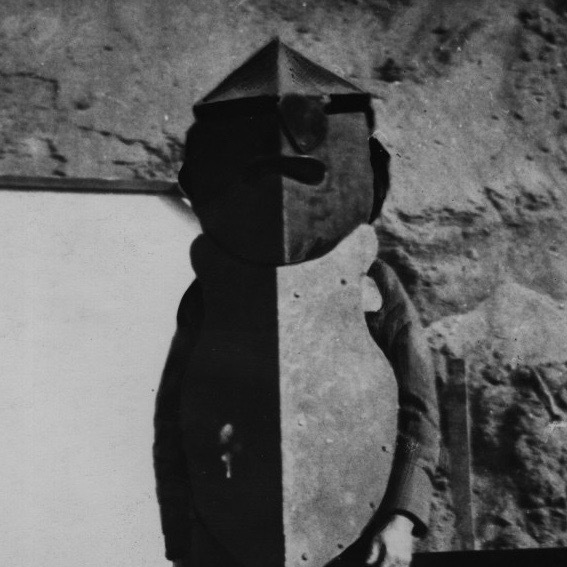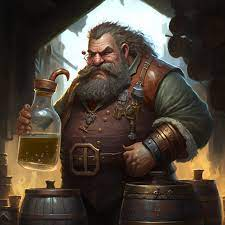This kind of post seems like a good way for new folks to get acquainted and more settled in to Lemmy.
I’m old. 60 this year. My first game was in 1977. In high school, I was the DM for the D&D club - and ran all-night games for friends. Some are still very close. One of those is “F”. His wife is “J”. They have a 15yo daughter “S”, and a 12yo son, “G”. I have a 13 yo son, “M”. My sister (50yo and a professional writer), is “E”. That’s 6 players.
Our last campaign had them defeat the King of Werewolves by freeing the Tarrasque from a city inspired by “Salt-in-Wounds”. There was some direct divine intervention to increase the Epicality level. There were effectively no real rules, as no one was willing to learn any. Collaborative storytelling more than “a game”. The real audience was the three kids, the adults are in for the storytelling and wacky fun.
We are just starting a new campaign based on the largest ruleset I could get them to agree to actually read and understand: 1976 OD&D (A bit of Chainmail, 3 books, plus Greyhawk). They are all starting at level 1.
- F: Human Fighter
- J: Halfling Thief
- E: Halfling Magic-User
- G: Human Magic-User
- M: Human Cleric
- S: Halfling Thief
And my son has recently persuaded the girl-next-door “C” (14) to join. She has never played before. Also a Halfling Thief. That’s seven now, 4 are young teens.
They start in a mid-sized town of Halflings and Humans, surrounded by tame countryside. Backstories include family heritage, links to each other, and description of their motivations. “C” went in DEEP with a story about being exiled to this backwater land. They are looking to establish themselves as the local famous adventurers. They do not suspect that thier quiet breadbasket-of-the-empire shire has a hidden reserve of Dark Evil growing in hidden places.
I’m going with “The Hobbit” usage of thief: “Burglar wants a good job, plenty of Excitement and reasonable Reward”. Clever adventurers with no great fighting skill and no magic. Robin Hood -style thievery. Sessions will be reverse Scooby-Do; A simple mundane problem slowly turns into a Dark Magic Mystery that is resolved to leave only more questions. Puzzles, traps, jump scares, mysterious and misleading NPCs, and mild combat for pacing.
House rules:
- RULE ZERO: Have fun. If you’re not enjoying the game, speak up.
- Rule of Cool: This is a fantasy game - make it fantastic!
- Rule of Respect: Respect the game and the players. Don’t be disruptive. Know the important rules. Pay attention. Read the table.
- All character alignments are GOOD. “Chaotic” is only relative: I do not want antisocial behavior. Disrespect for unjust and unneeded laws is one thing, stabbing your buddy in the back is RIGHT OUT!
- Your hit points are MAX for the first die. For many of the monsters, too.
- Know your to-hit roll, or you MISS. Know your damage roll, or it’s ZERO. Know your spell requirements, or it FAILS. Know your hide-in-shadows roll, or it FAILS. Track your remaining HP. Keep count of your inventory. Get it?
- We will not use experience points. Characters will level up for major milestones. In particular, when the entire party works together in a cooperative way to overcome a serious challenge. (In effect, we will play at level 1 until it’s not as much fun, then “graduate”.)
- Zero HP = Down and Unconscious and Dying. The injured will lose 1 HP per round until -9, then DIE. Immediate application of first aid will hold the victim at death’s door until a more permanent solution is applied.
- Combat order & Initiative = Dexterity order. (Highest DEX characters act first.)
Magic
- Level 1 Clerics have spells like Level 2 Clerics in the rules book. Other shifts to smooth out the table. M has the details.
- Level 1 Magic-Users have spells like Level 2 Magic-Users in the rules book. All levels are similarly shifted. In other words, delete the top row and shift the table up.
- First level characters (“Mediums”) have TWO first level spells per day. 2nd level M-Us (called “Seers”) have three first-level spells and one 2nd level spell per day.
- A “spell slot” is a spell memorized at the beginning of the day. Be sure to mark your memorized spell on your sheet. A memorized spell can be cast without the spell book and without delay. Non-memorized spells need to be read from the book. It takes one round to open the book to the correct spell, and another to read it. One spell slot for first level.
- All spells for the level are available. Number able to cast per day rises with level. Yes, you need a spell book. Yes, material components, too.
- Scrolls are single-use. And most will have a title on the top. (Sometimes it is a lie.)
- A drop of potion will determine its function. However, poison takes effect with just that drop. You get a saving throw.
What do you all think?
I love this. I especially love the “play at level 1 until it’s not fun”. Progression is secondary to a good story. Back when I was playing 1st and 2nd editions, new players would start as zero level characters, where we roleplayed short adventures around them being apprentices for organizations such as a thieves guild, a church, a fighter’s guild or for some wizard or going to an academy. The characters might end up meeting each other by having similar quests given to them and they become friends who evolve into adventurers.
That’s a great method. I’m stealing it for future games.
Hey, not sure if you’re aware but there’s a whole genre that harkens back to old school D&D styled gaming. It’s called the OSR and I’ve got a community here on Lemmy if you’re interested in checking it out: !osr@lemm.ee!
Old School Revival. It’s nice that new folks learn the old ways. Not really Revival for me, just my roots.
OSR, Old School Roots, still works! 😁
Renaissance!
Renaissance is revival in French 😁
@Xaphanos
I love this. I haven’t played D&D since I was a teenager (I’m 50 now) and it brought me back to the fun and innocence of the game. ❤️Thanks. That is exactly the target I’m trying to hit.
That’s also why I’m keeping the monsters to the most basic list. Nothing that was new in MM1. Goblins, Bugbears, Skeletons, Giants, etc. Plus Unicorns, Pixies, Treants, etc. And a lot of traps. “Remove Traps” will be used a lot.
The “know your hit roll” rule is brilliant and clearly comes from years of experience. Enforce it once or twice and the party will peer pressure each other into knowing their sheets.
I think milestones rather than XP should be the standard for everyone. It’s so much better for level ups to be narratively meaningful.
Can I ask, what the use of having players “bleed out” rather than just making death saves?
Also, that’s a huge party! How do you manage 7?
I can’t really say yet. All we’ve done is chargen. The last 2 campagns were 6, and it went fine. I have a special case - the adult players encourage the kids and add to the story rather than take the spotlight. My experience has always been with larger games, and 5-6 is a good place for me.
Good question.
Level 1 means a bad roll or 2 is death. Old school was 0HP = call the priest for a Ressurect spell. Bleed out rules means there is VERY little chance for death (large party means someone can peel off to stabilize) , but really lights a fire under them to Get Shit Done Fast. It’s a compromise.
Interesting that you have done away with death saving throws for 9 rounds of bleeding out, seems very lenient, most can be got to in 3. In my last campaign my char only died as took area damage then rolled a nat 1 on death save. Also rolling death saves in secret between player and DM is cool as means player tried to heal my dead cleric, and getting to sadly say “no effect” was heart breaking.





